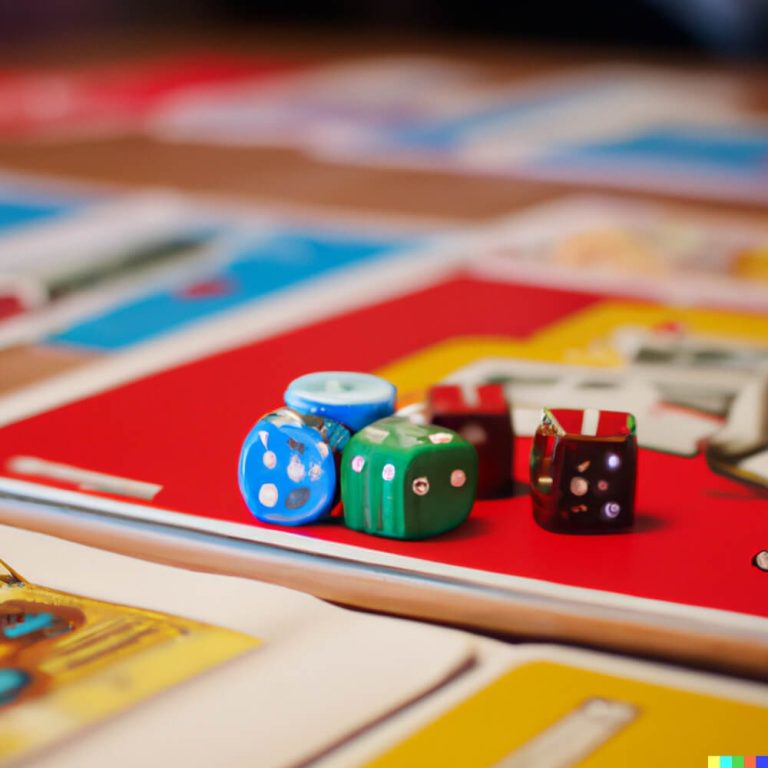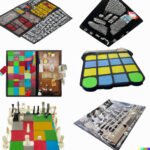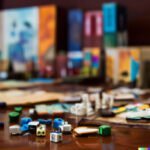Additional Resources
Making a Guess Who? game board is fun and relatively straightforward. All you need are two-sided pieces of paper, a printer or scissors to cut out game pieces if you don’t have a printer, colored markers, and double sided tape or glue.
To begin creating your game board:
1. Using the paper and markers, draw out 24 different faces on one side of each sheet of paper. The faces should contain enough features that they can be distinguished easily from each other. Additionally, make sure to vary the faces so there are young and old versions, with different genders and/or skin tones, so players have options when playing.
2. When all the faces are fashioned out on white paper, attach it to colored construction or cardstock paper using the double-sided tape or glue for stability. You could use this same technique going forward for any extra elements like games counters etc..if desired.
3. Cut up or have printed off at least 18 character cards that correspond with the facial representations that you have made on your game board (including a duplicate set of face boards for each player). Arrange these characters in front of each player as their selection tool during gameplay.
4. Print off questions cards that players can use to guess the character in play. The questions should be general enough that any individual can answer them but specific enough in scope that they relate directly to the characters featured in order to help players make educated guesses as to who they are looking for based on facial attributes – such as age group, gender etc.. Again these cards should come with duplicate sets depending on how many players decide to play (at least 2).
By following these steps, you’ll quickly create an exciting version of everyone’s favorite guessing game!
Alternative Ideas
Creating a Guess Who? board using computer software: There are various pieces of software available which can be used to design your own character quiz game. These programs generally offer a range of templates for you to choose from, enabling you to simply insert images of people or cartoons and adjust their size and position. Popular applications include Adobe Photoshop and Serif PhotoPlus X6. Users with advanced programming knowledge may want to consider activities such as coding their own HTML version of the game, or even a standalone PC version.
Creating a Guess Who? board using printed card sheets: Pre-printed cards featuring celebrity faces are widely available online, or in stores. If you’re feeling creative, you can use scissors and glue to cut out the required images and arrange them on your own handmade gameboard. Alternatively, ready-made Guess Who? boards can be bought from many retailers who specialize in board games.
Creating a Guess Who? board using virtual apps: Virtual versions of this timeless classic can easily be made by downloading one of the many apps now available for smartphones and tablets like the App Store’s ‘GuessWhat’. This activity is ideal if you’re looking for something quickly and easily created on a limited budget – no drawing required!
Advanced Techniques
1. Puzzle-Solving Elements: Use pieces that are easy to move, such as tiles that can flip over. This will help players get a feel for the game before they have to make decisions and guesses based on unexpected elements.
2. Mini-Games: Add in mini-games throughout the board. These might be questions about one of the characters that contestants must answer correctly before being able to continue or even battles between two characters who seem to keep getting in each other’s way.
3. Time-Limited Rounds: To increase the difficulty level, add in time-limited rounds where contestants must guess who among several pictures is hiding the character they are looking for. This will add an element of surprise and pressure that can lead to entertaining outcomes!
4. Clues and Traps: When creating an especially difficult board, implement clues and traps into the mix. Such clues might require players find a piece or item hidden somewhere on the board while traps might eliminate a player’s chances of victory if not avoided correctly — adding additional intrigue and surprise to your game night!
Themes
Science Fiction: Choose characters from popular science fiction films, TV shows, books, and games. You may choose to have the characters be drawn or printed out on cardstock. You could also use props or figurines if possible. Making your own character cards is also an option- just remember to keep a consistent style that fits with the science fiction theme!
Cartoon: Select cartoon characters from your favorite TV shows and movies. Try to find images of the characters so you don’t have to draw them yourself, unless you are an experienced artist! Keep the colors in tune with your theme for example using pink for princesses and blue for superheroes. In order to give it a game-like feel, you can find cardstock paper that is specifically designed for board games.
Alpha Guess Who?: Create a game board of all letters from A – Z that represent different categories such as animals, cities, countries, flowers etc. Get creative with this one by drawing each letter according to the category they represent. For instance an S could look like a snake if you were choosing animals as your category!
Fun Variations
Rolling Dice: You can use a die to determine which squares the players will “land” on. Each player rolls a die and must move that many spaces along the board.
Creating Treasure Maps: On each Guess Who game board you can create a treasure hunt in which the players must collect certain items after “landing” on each square. The items can range from guessing who’s behind various doors, or other hints to uncover certain mystery characters alongside the ones featured in standard Guess Who boards.
Bonus Round: A bonus round requires players to answer a series of questions correctly before they can proceed. After all challengers have filled out their grids and made a guess as to who they think is their opponent’s character, they can then compete in a bonus question round where whoever answers the most correct number of questions during this period wins the game. The bonus questions could either be based on the characters featured on the board or general trivia related to pop culture.

I love playing all kinds of games – from classics like Monopoly to modern favourites like Ticket to Ride.
I created this blog as a way to share my love of board games with others, and provide information on the latest releases and news in the industry.





